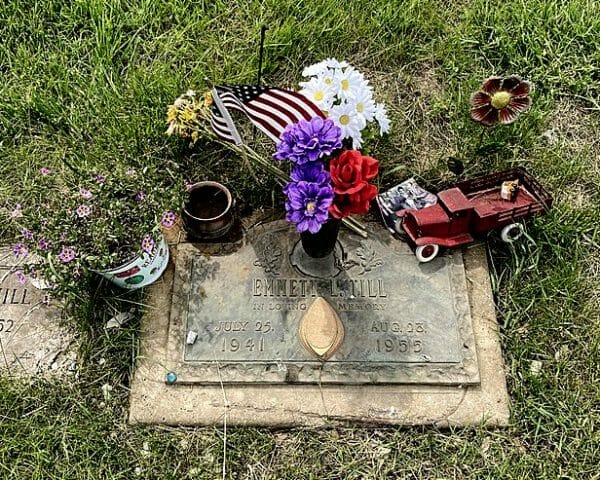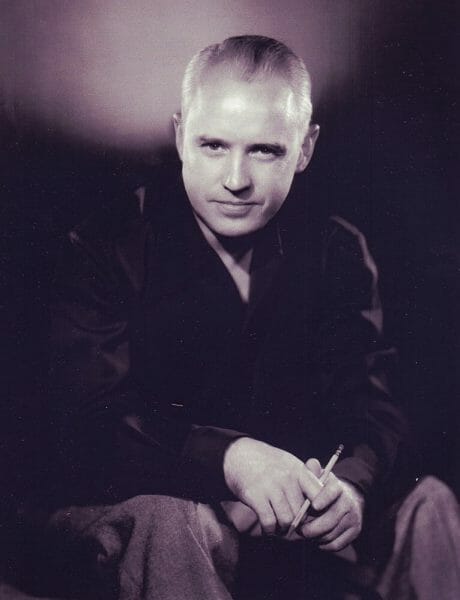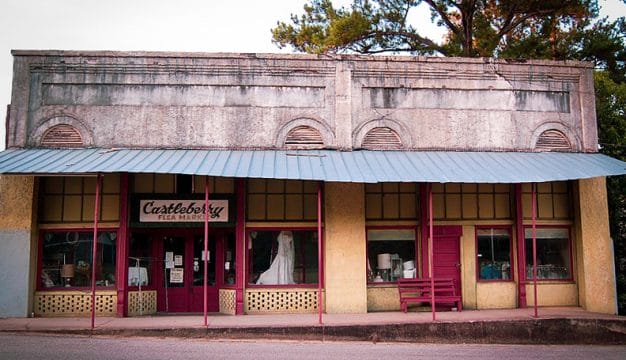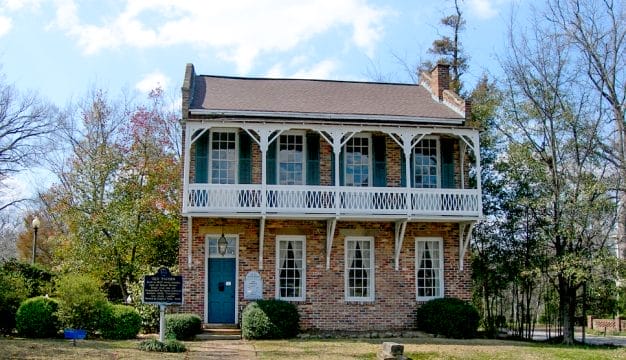William Bradford Huie
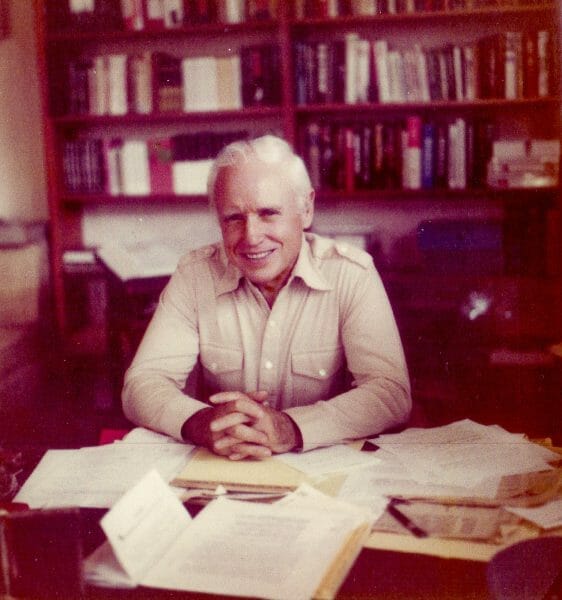 William Bradford Huie
William Bradford “Bill” Huie (1910-1986) ranks as one of Alabama’s most prolific authors. Over the course of his long career, Huie (pronounced “hue-ee”) published numerous works of fiction and nonfiction, but he is perhaps best known as an investigative journalist. His career spanned most of the twentieth century, and Huie was a keen observer of many of that century’s defining events, including the Great Depression, World War II, and the struggle for civil rights.
William Bradford Huie
William Bradford “Bill” Huie (1910-1986) ranks as one of Alabama’s most prolific authors. Over the course of his long career, Huie (pronounced “hue-ee”) published numerous works of fiction and nonfiction, but he is perhaps best known as an investigative journalist. His career spanned most of the twentieth century, and Huie was a keen observer of many of that century’s defining events, including the Great Depression, World War II, and the struggle for civil rights.
Huie was born on November 13, 1910, in Hartselle, to John Bradford and Margaret Lois Brindley Huie. He was the eldest of three children and demonstrated an unusual intelligence at an early age. In 1927, he graduated from Morgan County High School, and was named valedictorian of his graduating class.
Huie’s career in writing began when he was a student at the University of Alabama. He sold his first story to True magazine while still a student at the university. Huie’s time in college was formative, and he would later use these experiences as the basis for part of his first novel, Mud on the Stars, a highly autobiographical coming-of-age story, which was published in 1942.
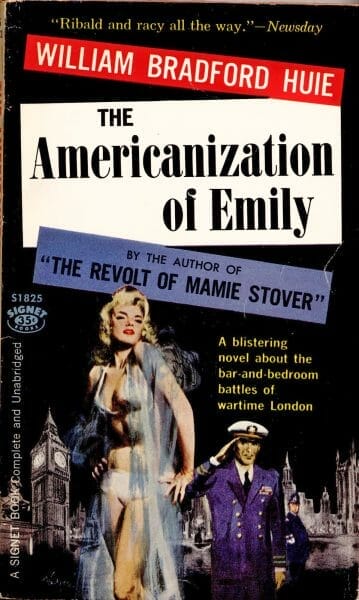 The Americanization of Emily
Huie graduated from college in 1930. Four years later, he married his childhood sweetheart, Ruth Puckett, also of Hartselle. The couple lived in Birmingham in the early to mid-1930s while Huie sharpened his skills as a journalist, first with the Birmingham Post, from 1932 to 1936. Huie’s work at the Post afforded him a unique opportunity to observe Alabama’s business interests battle the reformist impulses of President Franklin Roosevelt’s New Deal. Huie’s time at the Post was brief. In 1937, he founded, along with Hubert Baughn, a former political writer for the Post, Alabama: The News Magazine of the Deep South. The publication, funded by Birmingham industrialists, was strongly pro-business and a constant and outspoken critic of the New Deal. Like the industrialists who funded the magazine, Huie bristled at the New Deal’s stricter regulation of big business. Although Huie left the magazine after less than a year to pursue other interests, it would remain the state’s primary outlet for political conservatism through the 1950s.
The Americanization of Emily
Huie graduated from college in 1930. Four years later, he married his childhood sweetheart, Ruth Puckett, also of Hartselle. The couple lived in Birmingham in the early to mid-1930s while Huie sharpened his skills as a journalist, first with the Birmingham Post, from 1932 to 1936. Huie’s work at the Post afforded him a unique opportunity to observe Alabama’s business interests battle the reformist impulses of President Franklin Roosevelt’s New Deal. Huie’s time at the Post was brief. In 1937, he founded, along with Hubert Baughn, a former political writer for the Post, Alabama: The News Magazine of the Deep South. The publication, funded by Birmingham industrialists, was strongly pro-business and a constant and outspoken critic of the New Deal. Like the industrialists who funded the magazine, Huie bristled at the New Deal’s stricter regulation of big business. Although Huie left the magazine after less than a year to pursue other interests, it would remain the state’s primary outlet for political conservatism through the 1950s.
Huie served in the Navy during World War II, and his experiences provided him with a wealth of material that he would continue to mine into the last years of his life. The war provided Huie with material for several nonfiction works, including The Hero of Iwo Jima (1962), which recounts the tragic story of Ira Hayes, who helped raise the U.S. flag on Iwo Jima. The war years provided lucrative works of fiction as well, such as The Revolt of Mamie Stover (1951) and The Americanization of Emily (1959), both of which dealt with the theme of profiting from the war. Both novels were adapted into films.
Huie found much success in the immediate post-war years. Huie had written for the American Mercury, H. L. Mencken’s venerable journal, before the war, and returned to the journal in 1946 to serve as associate editor and editor until 1952. During his time at the Mercury, Huie continued to be highly productive, often publishing his own stories and articles in the magazine, as well as touring the country as a lecturer. In the early 1950s, Huie also served as a moderator and co-host on Chronoscope, a news program similar in format to today’s Meet the Press. Huie’s work at the Mercury and on Chronoscope put him in contact with the leading figures of literature and politics in post-war America.
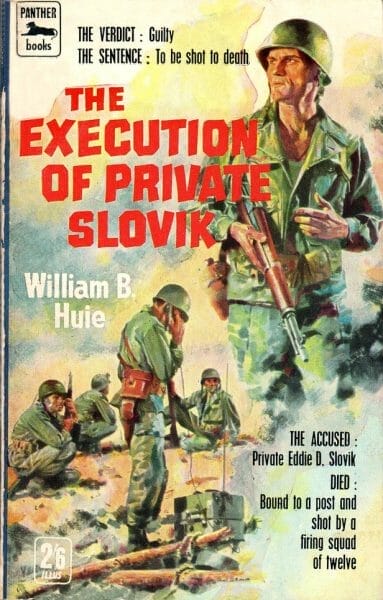 The Execution of Private Slovik
In 1954, Huie again turned to the war in one of his most successful books, The Execution of Private Slovik, an intense account of the only American soldier executed for desertion during World War II. A work of nonfiction, the book’s literary style anticipates the “nonfiction novels” that would become popular in the 1960s and 1970s, including such works as Truman Capote’s In Cold Blood and Norman Mailer’s The Executioner’s Song. Twenty years later, The Execution of Private Slovik was adapted into a television movie starring Martin Sheen and was, at the time, the most-watched television film ever made.
The Execution of Private Slovik
In 1954, Huie again turned to the war in one of his most successful books, The Execution of Private Slovik, an intense account of the only American soldier executed for desertion during World War II. A work of nonfiction, the book’s literary style anticipates the “nonfiction novels” that would become popular in the 1960s and 1970s, including such works as Truman Capote’s In Cold Blood and Norman Mailer’s The Executioner’s Song. Twenty years later, The Execution of Private Slovik was adapted into a television movie starring Martin Sheen and was, at the time, the most-watched television film ever made.
Huie had an infallible eye for an important story, and in 1955, this instinct led him to one of the most controversial pieces of his career. In August of that year, 14-year-old Emmett Till, a black youth from Chicago, was murdered in the Mississippi Delta in retaliation for his alleged sexual advances toward a white woman. His killers, two white half-brothers, were acquitted by an all-white jury. Shortly after their acquittal, Huie, with the financial backing of Look magazine, paid the two men for their story, in which they admitted to the murder, a controversial practice sometimes derided as “checkbook journalism.” The Till case set the tone for much of the remainder of Huie’s career, which gravitated to race-related crimes and some of the most notorious murders of the civil rights movement, including the murders of the three civil rights workers in Mississippi during Freedom Summer (Three Lives for Mississippi), as well as the assassination of Martin Luther King, Jr. (He Slew the Dreamer). In both cases, Huie claimed to have paid sources, including Martin Luther King’s accused assassin, James Earl Ray, for their stories, a practice for which he was frequently criticized.
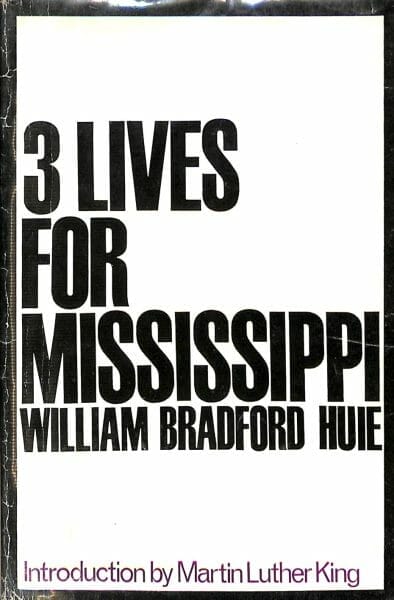 Three Lives for Mississippi
In 1957, Huie moved back to Alabama to live full-time and continued to work as a freelance writer for the rest of his life. Ruth Huie died in 1973, and in 1977 he married his second wife, Martha Hunt Robertson of Guntersville. His work on race-related crimes and his frequent and outspoken criticism of Gov. George Wallace made him a continuing source of controversy, and although he was a commercial success, he was not always popular among his fellow Alabamians. In 1967, Huie’s public outspokenness led to a much-publicized cross-burning at his home in Hartselle.
Three Lives for Mississippi
In 1957, Huie moved back to Alabama to live full-time and continued to work as a freelance writer for the rest of his life. Ruth Huie died in 1973, and in 1977 he married his second wife, Martha Hunt Robertson of Guntersville. His work on race-related crimes and his frequent and outspoken criticism of Gov. George Wallace made him a continuing source of controversy, and although he was a commercial success, he was not always popular among his fellow Alabamians. In 1967, Huie’s public outspokenness led to a much-publicized cross-burning at his home in Hartselle.
In 1975, Huie published his last novel, In the Hours of Night, a fictionalized account of former Secretary of Defense James Forrestal. Huie had written on Forrestal for the Mercury, and felt that the government was complicit in the former secretary’s death. Huie believed that the work would finally bring him the critical acclaim that had largely eluded him, but the book was a critical and commercial failure. When he died on November 20, 1986, in Guntersville, all of his books were out of print.
Although Huie’s name is not as well-known today as it once was, his work remains timely. Since the 1990s, many of the unsolved race murders of the civil rights era that Huie investigated have been reopened and investigated, including the Till case and the Freedom Summer murders. Huie’s “checkbook journalism,” the practice of paying sources for their stories, remains controversial. In November 2006, the city of Hartselle renamed the public library in Huie’s honor. In 2018, he was inducted into the Alabama Writers Hall of Fame.
Works by William Bradford Huie
The Fight for Air Power (1942)
Mud on the Stars (1942)
Can Do! The Story of the Seabees (1944)
The Case Against the Admirals: Why We Must Have a Unified Command (1946)
The Revolt of Mamie Stover (1951)
The Execution of Private Slovik (1954)
Ruby McCollum: The Woman in the Suwannee Jail (1956)
Wolf Whistle and Other Stories (1959)
The Americanization of Emily (1959)
The Hero of Iwo Jima and Other Stories (1962)
Hotel Mamie Stover (1963)
The Hiroshima Pilot: The Case of Major Claude Eatherly (1964)
Three Lives for Mississippi (1965)
The Klansman (1967)
He Slew the Dreamer: My Search, with James Earl Ray, for the Truth About the Assassination Martin Luther King, Jr. (1970)
In the Hours of Night (1975)
Video
Further Reading
- Egerton, John. Speak Now Against the Day: The Generation Before the Civil Rights Movement in the South. New York: Knopf, 1994.
- Roberts, Gene, and Hank Klibanoff. The Race Beat: The Press, the Civil Rights Struggle and the Awakening of a Nation. New York: Knopf, 2006.
- “The Shocking Story of Approved Killing in Mississippi.” Look (January 1956): 46-50.
- University of Alabama Center for Public Television. I’m in the Truth Business: William Bradford Huie. VHS. Tuscaloosa: University of Alabama Center for Public Television, 1996.
